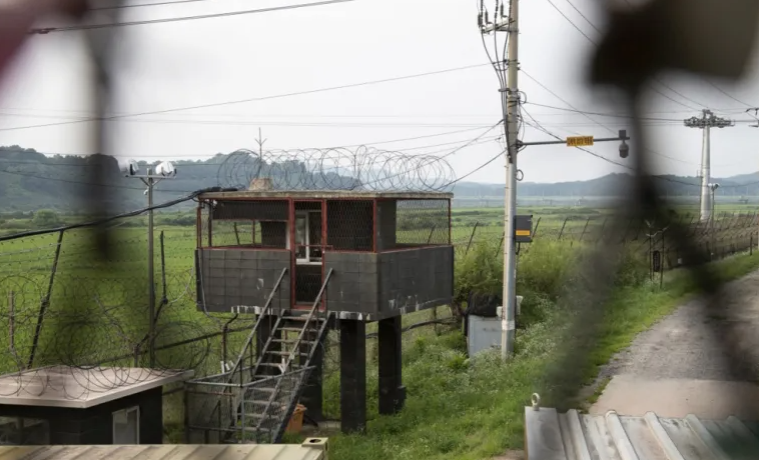WORLD NEWS

In an effort to combat unruly tourist behavior and overcrowding at scenic spots, authorities in Fujikawaguchiko, Japan, have constructed a towering mesh barrier to deter visitors from breaking rules and causing disruptions.
The picturesque town, renowned for offering stunning views of the snow-capped Mount Fuji, has long grappled with issues stemming from tourists eager to capture the perfect snapshot for social media. Despite repeated warnings from local authorities, visitors have continued to flout parking regulations, littering norms, and smoking bans, often congregating in specific areas to photograph the revered mountain.
The newly erected barrier, standing at an impressive eight feet in height and spanning 65 feet across, serves as a visual deterrent to deter tourists from encroaching on restricted areas and disregarding established rules. While officials express regret at resorting to such measures, they emphasize the necessity of addressing the persistent challenges posed by irresponsible tourism.
Furthermore, in a bid to manage the influx of visitors during the climbing season, authorities in Yamanashi prefecture, where Fujikawaguchiko is located, have implemented new regulations for hikers tackling the Yoshida Trail on Mount Fuji's Yamanashi side. Starting from July 1 to September 10, climbers will be required to make advance reservations and pay fees, aiming to curb overcrowding and mitigate risks associated with rushed ascents.
Among the key measures introduced is a daily limit on the number of climbers permitted on the mountain, capped at 4,000 individuals. These efforts come amidst projections of record-breaking tourism numbers, with the Japanese National Tourism Organization anticipating 32 million visitors to the country this year.
As communities worldwide grapple with the complexities of managing tourism sustainability, Fujikawaguchiko's proactive steps serve as a poignant reminder of the importance of balancing tourism promotion with responsible stewardship of natural resources and cultural heritage.




